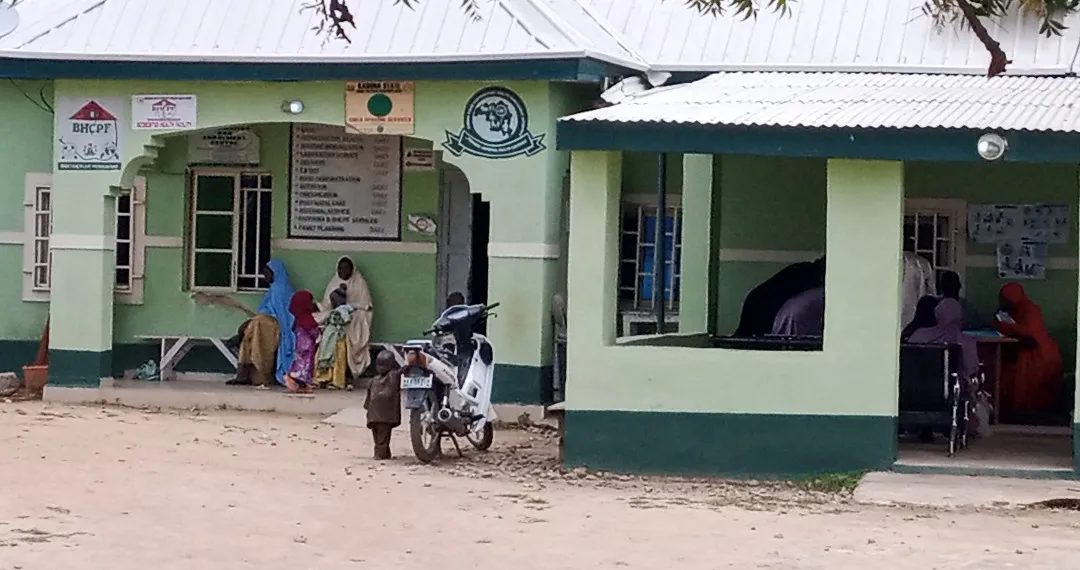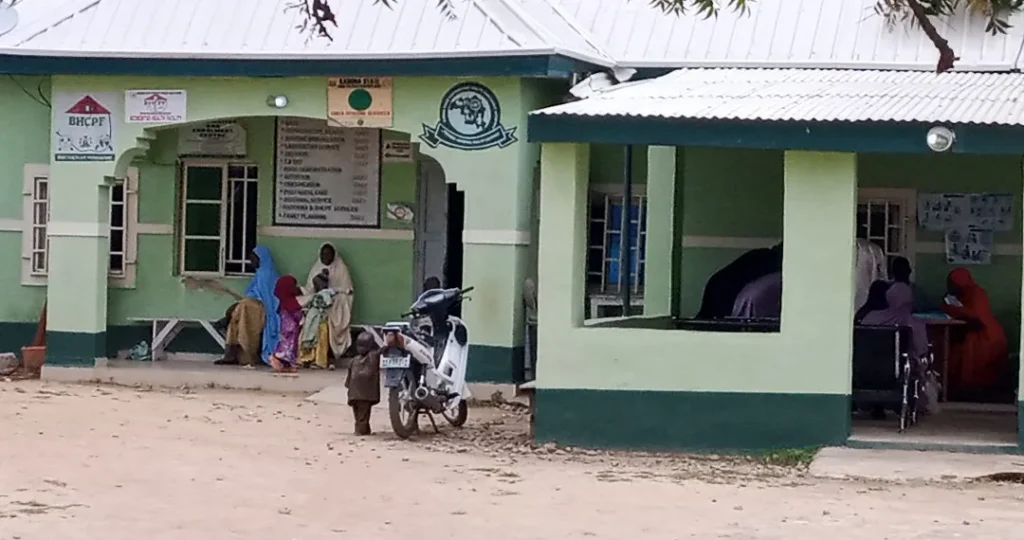
Source: Aisha Yusufu

Shehu Iyal Primary Health Center Kwarbai Zaria (PHOTO CREDIT: Aisha Yusufu)
At least 840 suspected cases and 62 confirmed infections were recorded in Kaduna as of May 2025. Health workers say low immunization rates, poor public awareness, and weak healthcare access are fueling the outbreak.
In Kaduna State, a growing diphtheria outbreak is silently devastating communities, especially among children. Despite being a vaccine-preventable disease, diphtheria has continued to spread in parts of the state due to low immunisation coverage, misinformation, and gaps in the public health system.
According to data obtained as of May 2025, Kaduna State recorded at least 840 suspected cases of diphtheria, with 62 confirmed infections. Most of the victims are children under the age of 14, many of whom had not received the full course of childhood immunizations.
Diphtheria is a serious bacterial infection that affects the throat and airways and can lead to difficulty breathing, heart failure, and death if not treated quickly. It is highly contagious and spreads through respiratory droplets. Although global health agencies, including the World Health Organization (WHO), have long emphasized the importance of routine vaccination, outbreaks like the one in Kaduna highlight persistent gaps in implementation.
In Kaduna’s rural communities—particularly in hard-to-reach or conflict-prone areas—many families either lack access to vaccines or are unaware of the risks of non-immunisation.
Health experts blame several factors for the recurring outbreaks:
“I lost my 8-year-old son to diphtheria,” said Halima Sani, a mother in Giwa Local Government Area. “We thought it was just sore throat and fever until he couldn’t breathe anymore.”
Community health workers echo these tragedies. “We are seeing more children with swollen necks, difficulty breathing, and fever—classic signs of diphtheria,” said Musa Ibrahim, a local health volunteer in Zaria. “Most of them have never received any vaccine.”
The Kaduna State Ministry of Health, in collaboration with the National Primary Health Care Development Agency (NPHCDA) and international organisations, has launched a reactive vaccination campaign in high-risk LGAs. However, experts say emergency campaigns alone won’t be enough.
“We need stronger routine immunisation, better community outreach, and faster case detection,” said Dr. Hauwa Musa, a paediatrician based in Kaduna. “Lives are being lost to a disease we have the tools to prevent.”
To stop the spread of diphtheria and prevent further deaths, health advocates recommend: